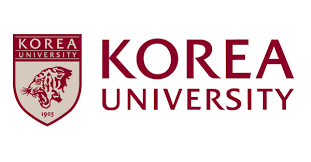Korea University: From Asset Management to Charitable Donations—Design Them According to Your Personal Goals
Korea University and Hana Bank signed a business agreement to spread donation culture on March 3, 2022, at Korea University’s Main Building.
According to the data on private university donations published by academyinfo.go.kr (based on each university’s accounting records), Korea University ranked first in the amount of donations received in the 2019 and 2020 academic years. Hana Bank, which launched the first living trust in Korea in 2010, is the largest trust executor among domestic financial institutions. The purpose of this agreement is to utilize the synergy between the two institutions to spread the culture of inheritance donations through trusts, which can be essential for an aging society.
A living trust is a trust in which a trustee (e.g., Hana Bank) manages, operates, and disposes of the property owned by a settlor, and the property is donated to a beneficiary (e.g., Korea University) after the settlor’s death. A living trust enables a settlor to design the details of managing his or her property and inheritance. For example, if a settlor dies while living on the proceeds of real estate, he or she can donate the real estate to a beneficiary, or they can make donations in installments over several years instead of all at once. Another characteristic of a living trust is that it requires neither notarization nor witnesses, unlike a will. Trust property may include cash, real estate, stocks (listed or unlisted), bonds, funds, and insurance policies.
Living trusts are common in Europe and the United States, while in super-aged Japan, trusts are increasing; around 164,000 trusts were set up there between 2012 and the first half of 2018. In South Korea, as the number of elderly people who wish to bequeath their inheritances in a way that meaningfully contributes to society grows, donation trusts are expected to increase gradually.
Korea University’s donation consultant group, which consists of lawyers, judicial scriveners, tax accountants, real estate agents, and fund raisers, provides services such as the minimization of capital gains and inheritance taxes and assists in setting up a donation method according to each donor’s type of asset and his or her life plan and donation philosophy. Korea University donors can designate for what purpose their donation will be used—research, scholarship, or education infrastructure. For example, the donors can support socially relevant research areas, such as AI, blockchain, and medicine, or contribute to the establishment of cutting-edge educational facilities to create a legacy at the university.
At the agreement signing ceremony, Korea University President Chung Jin Taek said, “Korea University was founded in 1905, when the fate of the nation was hanging in the balance, to save the country through education. Since then, many people who aspired to nurture future talents have sponsored Korea University with their generous donations. It would not be an exaggeration to say that Korea University’s 117-year history was based on a lot of support.” He added, “Korea University will strive to spread a good donation culture in the society by transparently and effectively operating a trust program that reflects the lives and philosophies of the donors.”
Park Sung-ho, president of Hana Bank, said, “I am looking forward to the synergy that the two organizations, leading in various sharing activities, will exert as partners in spreading the culture of donating inheritances. We will continue to pursue ESG management activities with sincerity to fulfill Hana Financial Group’s mission of “growing together, sharing happiness.”

